Rabbit Not Eating: When to Worry and Management

By Evelyn Harcourt
July 31, 2025 - 1 min read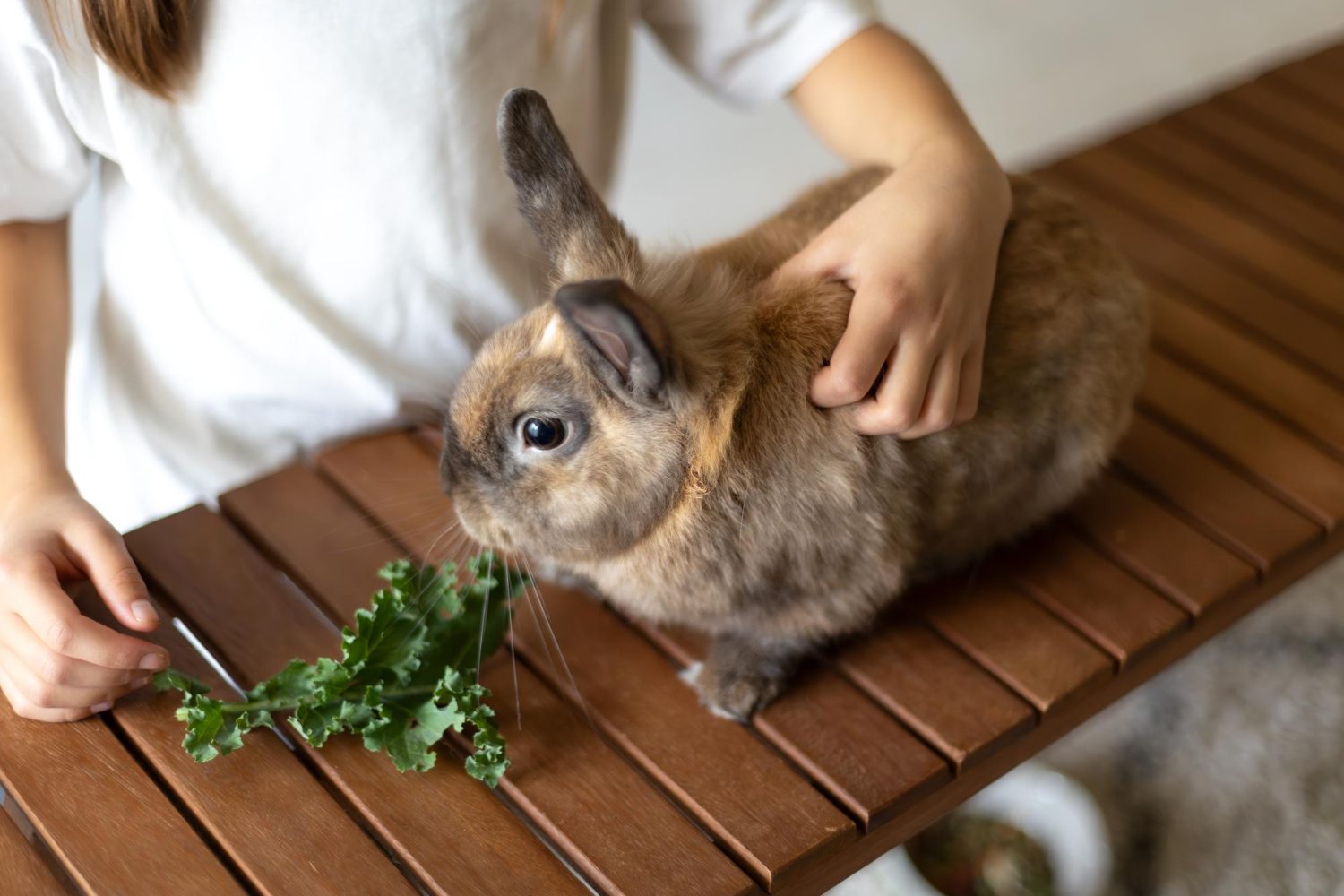
Rabbits are very different from cats and dogs and have a specific set of needs regarding their eating, pooping, and digestive systems. A change in their eating habits always warrants further investigation, and bunnies can go downhill rapidly when off their food.
This article explores the reasons a rabbit may stop eating, what can be done, and when veterinary intervention is a must. We also talk you through how to optimise your rabbit’s health from home, to prevent future episodes of anorexia.
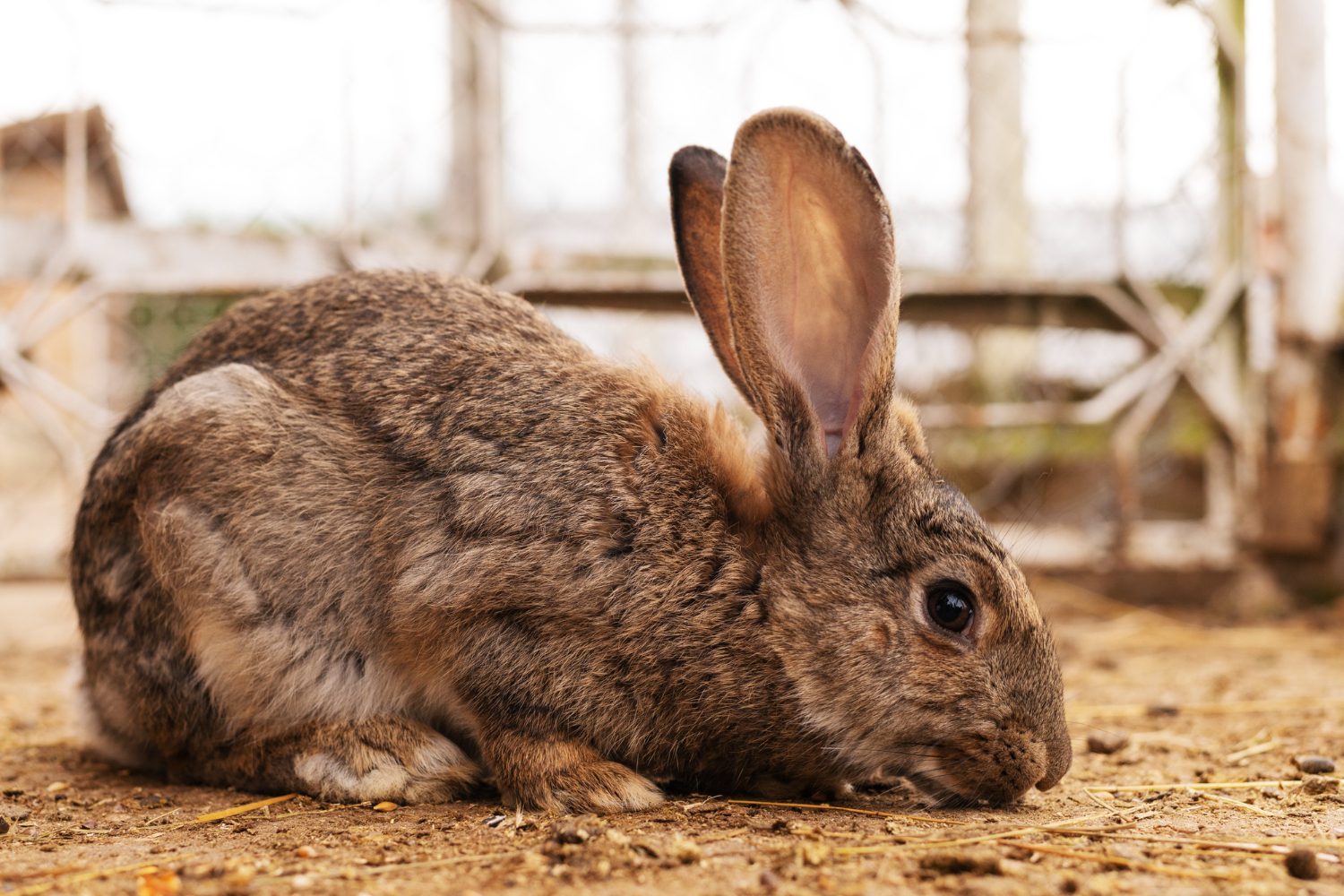
Understanding Normal Rabbit Eating Patterns
A rabbit constantly eats, and going just eight hours without food can lead to gastric ulcers, acidosis and ketosis.
What a Balanced Rabbit Diet Looks Like
You are aiming for a diet that is 80-90% grass or hay, about an egg cup of pellets and some fresh vegetables and herbs like parsley and mint.
Typical Daily Food Intake and Behaviour
A good rule of thumb is to offer the equivalent of their body size in grass or hay each day. Rabbits are constantly munching on their food, chewing and grinding their grass or hay.
Common Reasons Rabbits Lose Their Appetite
A loss of appetite is a big red flag in a bunny, and there are lots of reasons it can happen.
Environmental or Routine Changes
Rabbits are a prey species and cannot cope with much stress. Things like the loss of a mated pair or a loud fireworks display nearby could cause a surge in their cortisol level and a sudden appetite dip.
Dental Problems and Mouth Pain
Their teeth are constantly growing, and they need to grind down food in order to keep them short.
Many domesticated rabbits develop overgrown and uneven teeth, which make it impossible for them to eat. This can be due to factors such as poor diet and genetics.
Underlying Illnesses
Diseases such as pneumonia, viral infections, pasteurella, and liver disease can all cause rabbits to lose their food.
This can be due to factors including low oxygen levels, fatigue, nausea, or pain. These bunnies may be displaying additional symptoms, such as noisy breathing or swollen abdomens.
Gastrointestinal Stasis (GI Stasis)
GI stasis occurs once the rabbit stops eating and also causes food refusal, a vicious cycle. As the gut slows down, it fills with gas, which causes cramping and pain. The imbalanced microbiome also leads to toxin production and even sepsis.
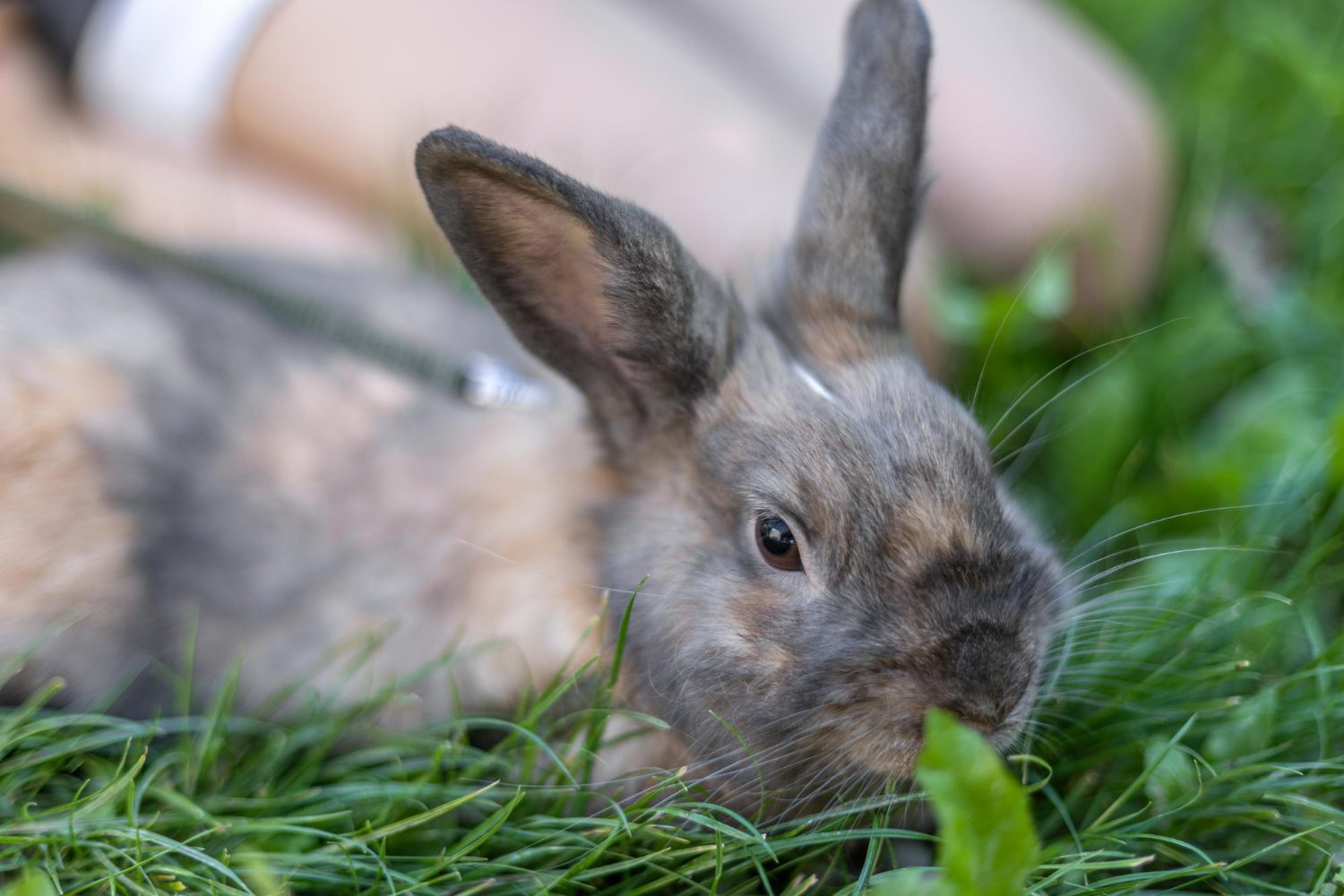
Red-Flag Signs: When to Worry Immediately
It takes an astute and experienced rabbit owner to spot early signs that their rabbit is unwell, as they are so good at masking symptoms. Any red-flag sign warrants seeing an emergency vet visit.
‘12-Hour Rule’ for Food Refusal
Though you may have heard of a ‘12-hour rule’, after this long without eating, your rabbit is going to be very unwell.
Realistically, 3-4 hours without any food is when you should be seeking vet attention.
Absence of Faecal Pellets or Small, Dry Droppings
As soon as you notice smaller, drier or less frequent poops, you know there is an issue that needs to be addressed. Monitoring pellet output is a great way of gauging how much your bunny is eating.
Hiding Away, Tooth Grinding or Hunched Posture
Some of the telltale signs that your rabbit is not happy include hiding away, moving less, or hunching over. You may hear them grind their teeth, which indicates they are in pain.
Lethargy, Rapid Breathing, or Low Body Temperature
As signs progress and your rabbit becomes more unwell, abdominal swelling and rapid or laboured breathing may also occur. Your bunny may lie down more and stop responding to you. It may also feel cold to the touch.
At-Home First-Aid Steps
There are some interventions that can be taken at the first hint of something amiss.
Encourage Safe Fluid Intake
It is not easy to assess a rabbit’s hydration, and much of their fluid is lost from the gut without any external signs. Encourage them to drink by ensuring their bowl and bottle are topped up with fresh water
Offer Fresh Greens and Aromatic Herbs
Greens and grasses are a great option because they have lots of fibre and water. Herbs such as parsley, mint, basil, and dill are excellent choices, as many rabbits find them highly palatable.
Gentle Abdominal Massage and Encouraging Movement
If your rabbit is happy for you to do so, you can gently massage their abdomen in a clockwise manner. Use a light and circular motion to aid digestion.
Get your bunny moving to help any gas pass along its gut. This can mean scattering herbs for it to eat or playing with toys. Never force your bunny to move if it is not feeling well.
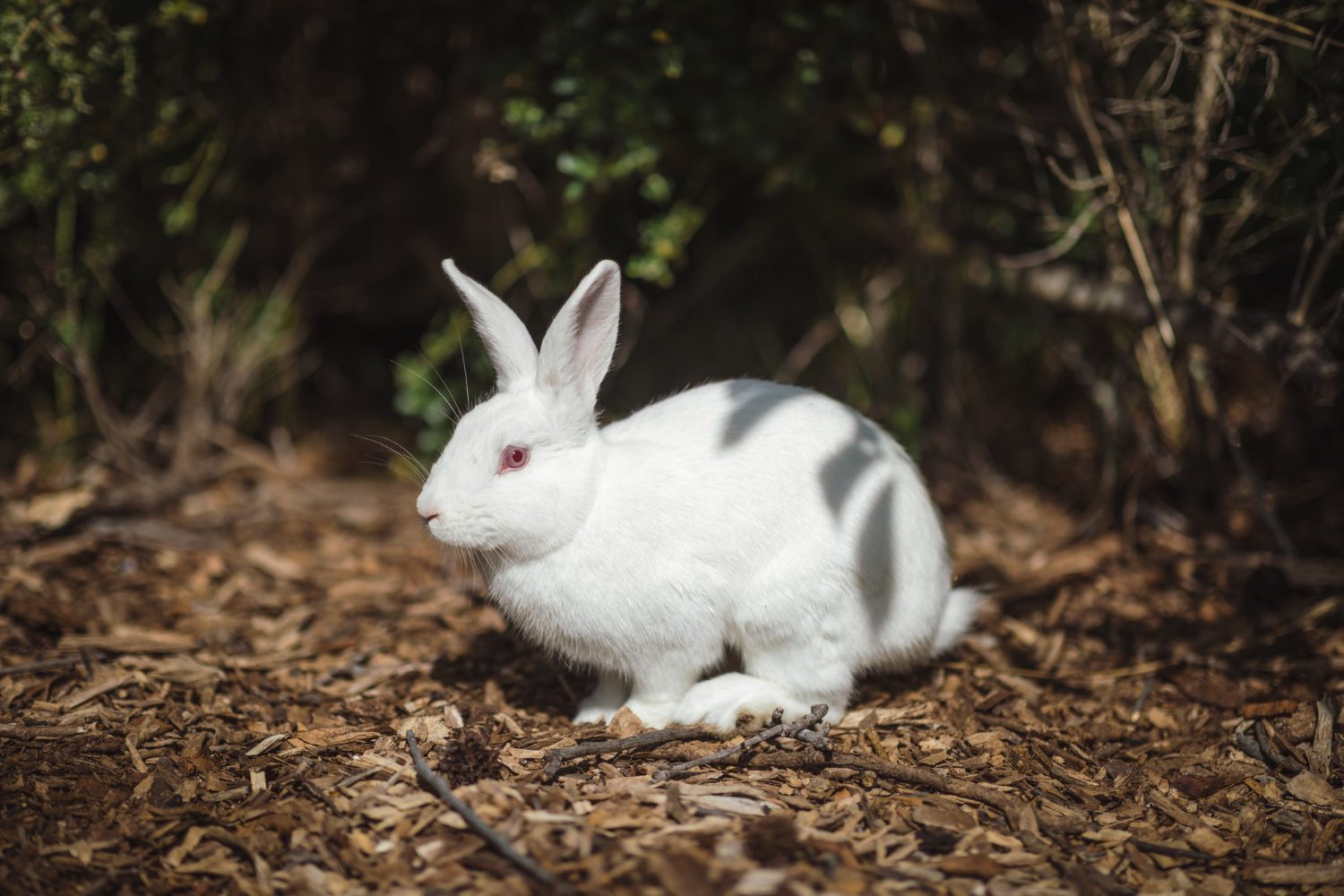
Veterinary Management
For the majority of rabbits, veterinary intervention is a cornerstone of their therapy.
Diagnostic Work-Up (Physical Exam, X-rays, Blood Tests)
Your vet will take a medical history from you and check your bunny over. This should include looking at their teeth, listening to their chest and gut, and feeling for any source of pain.
They may also run further tests, such as an X-ray to check for intestinal distension and blood tests to assess glucose levels.
Fluid Therapy and Pain Relief
Fluid therapy is so critical for these patients to prevent the gastrointestinal tract from drying out and to ensure it keeps moving.
Though rabbits are experts at hiding signs of pain, it should be assumed they are in discomfort if refusing food, are bloated or start passing less poo. There are a number of types of pain relief your vet can offer, including NSAIDs and opioids.
Prokinetic Medications and Assisted Feeding
To keep that gut moving, your vet may provide gut motility drugs. They’ll also advise you to syringe feed them around the clock if they are not eating adequately.
Dental Procedures or Surgery if Needed
For those with overgrown teeth they may need a dental treatment to resolve the issue.
Less commonly, surgery is indicated. This can be the case, for example, if the rabbit has a foreign body within their intestine.
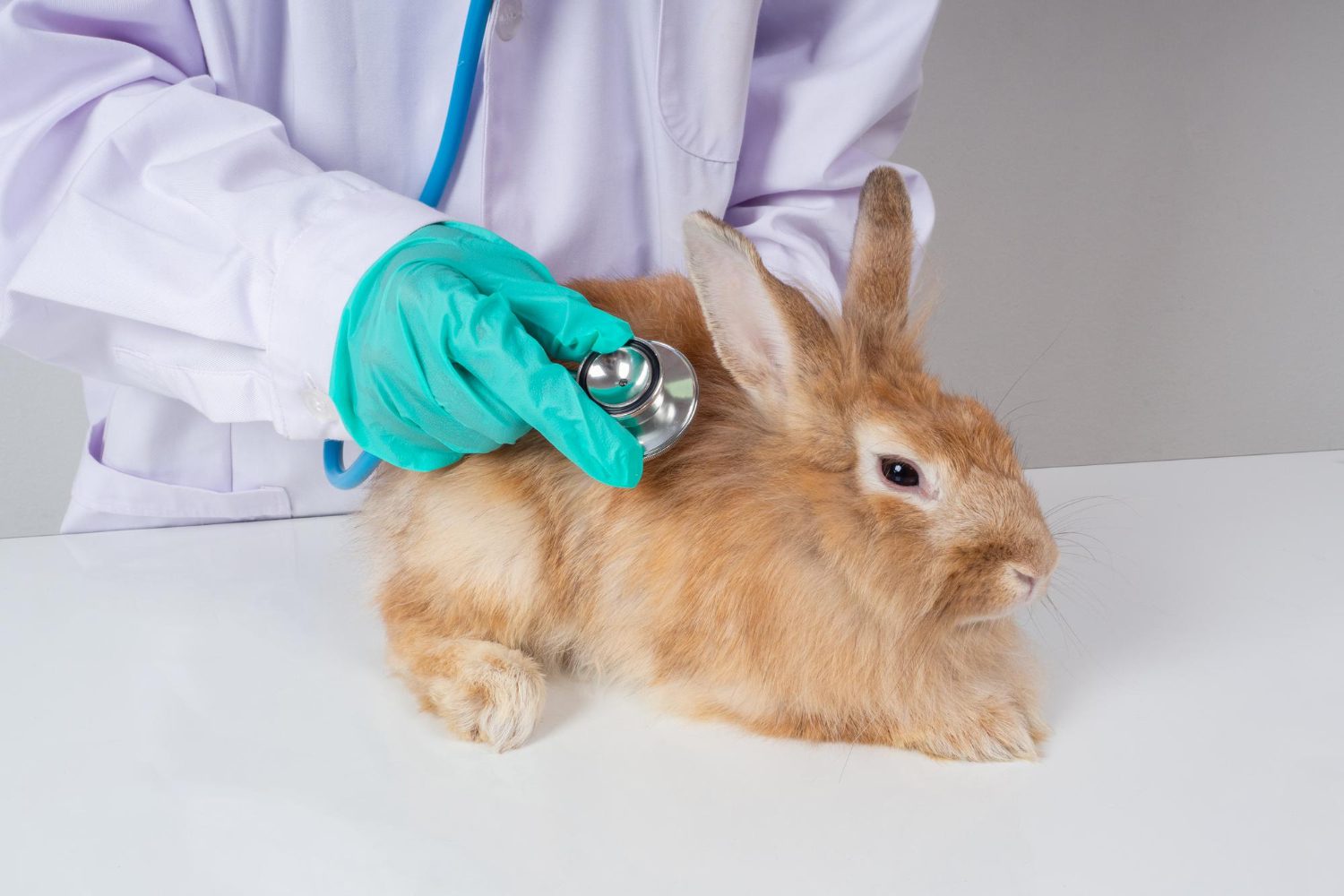
Ongoing Prevention and Care
Maintaining a consistent diet and home life can help your rabbit stay healthy.
High-Fibre Diet and Constant Hay Access
As a herbivore and a hind gut fermenter, your rabbit should always have grass or hay available. They need ample fibre in order for their teeth to stay short and their gut to continue moving.
Regular Vet Checks
Your vet should assess your rabbit’s teeth at every checkup. This includes the incisors (visible at the front) and molars (visible using a tool such as an otoscope to look deep inside the mouth).
Also, ensure your pet is up to date with its vaccines to prevent diseases such as Myxomatosis and VHD.
Stress Reduction and Enrichment
These prey animals are constantly on high alert and rely on us to keep their home feeling safe and stable.
Crucially, rabbits should never be kept alone. Without a bonded mate, they are always stressed, worried they have been separated from their pack and are in danger from predators.
Provide enrichment in the form of digging and foraging opportunities, chew toys, tunnels, and treat balls.
Monitoring Weight and Droppings Log
Fluffy rabbits can easily hide any weight loss. It is a good idea to regularly weigh your bunny, especially if they are getting older.
Similarly, consider keeping a droppings log if they have had previous bouts of anorexia or gut stasis.
Learn More About Rabbits Not Eating
Don’t hesitate to contact us if you have concerns about your rabbit or its eating habits.
We can guide you through the steps you need to take from home and also book you in to see one of our experienced vets.
Rabbit Not Eating FAQs
How long can a rabbit safely go without eating or pooping?
Though you may read about intervening after 12 hours of not eating, this is a very long time. More than 4 hours of food refusal is cause for concern.
Should I worry if my rabbit is eating but not drinking much water?
Rabbits can get lots of water from their diet, especially from grass, veggies and herbs. If they are acting normally and passing regular poops, this is not too concerning.
Can I give my rabbit over-the-counter laxatives meant for humans?
No, you must never give your rabbit a laxative. Their digestive system is different to ours, and a laxative can cause diarrhoea and may make them very unwell.
Continue reading
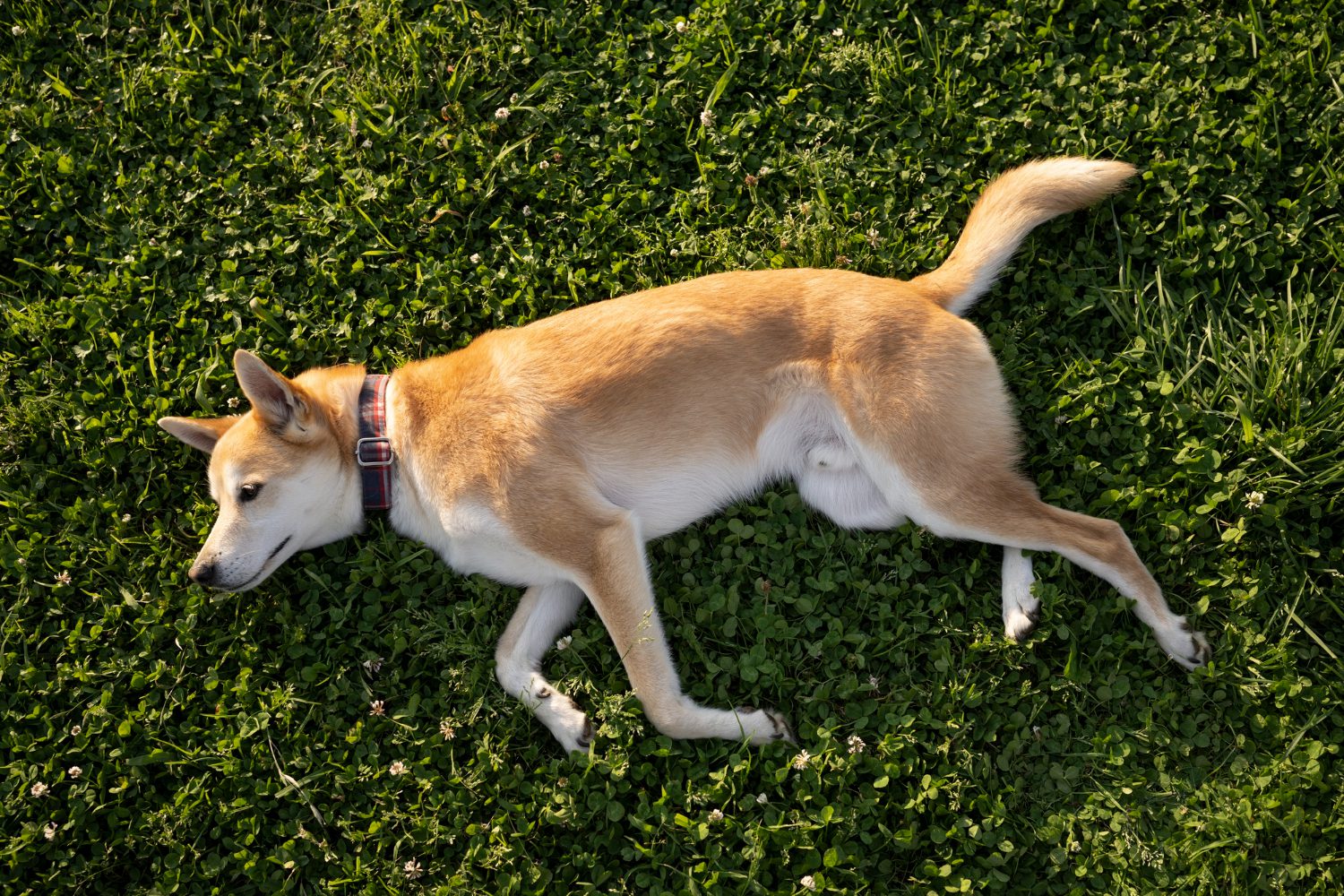
Signs of a Broken Tail in Dogs: Is it an Emergency?
Broken tail in dogs: warning signs and when it’s an emergency
Read article
Is a Dog Vomiting Blood an Emergency?
Is your dog vomiting blood? When to act and why it matters
Read article
Severe Allergic Reactions in Dogs
Severe allergic reactions in dogs: symptoms, causes and emergencies.
Read article